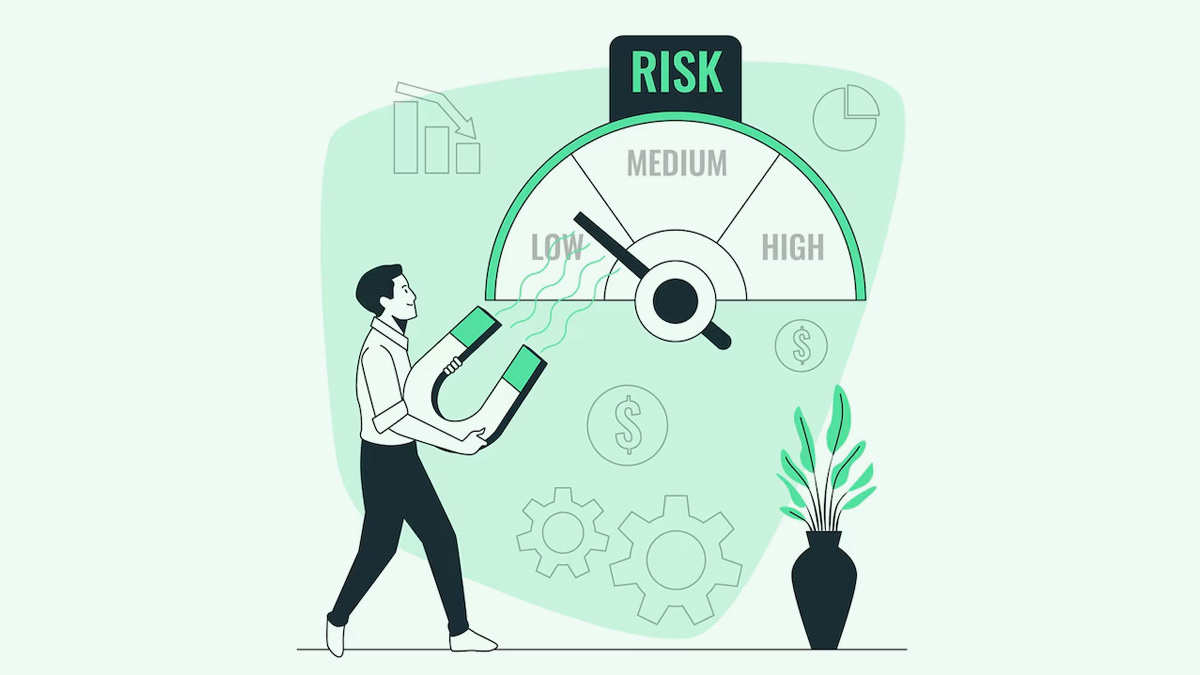
Investing in India can be an attractive opportunity for Non-Resident Indians (NRIs) looking to diversify their portfolios or contribute to the country's growth story. But as we know every investment, comes with its own set of risks. By understanding and managing these risks effectively, NRIs can make informed investment decisions and navigate the Indian market with confidence. Take a look at some of the key risks NRIs should be aware of when investing in India:

One of the primary risks for NRIs investing in India is currency fluctuation. Since NRIs typically earn and hold their wealth in foreign currencies, any depreciation of the Indian rupee against their home currency could erode the value of their investments in India. This risk can be mitigated through proper hedging strategies or by diversifying investments across different asset classes.
The impact of currency exchange rate fluctuations can greatly influence the value of their investments and the returns they receive upon repatriating funds to their home country.
India's regulatory environment can sometimes be complex and subject to changes in policies. NRIs need to stay informed about regulatory changes that could impact their investments, such as rules by RBI, taxation laws, foreign investment regulations, or changes in repatriation norms. Being aware of these risks can help NRIs make informed investment decisions and adapt to regulatory changes as they occur.

Like any market, the Indian market is also subject to volatility and fluctuations. Factors such as economic conditions, geopolitical events, corporate earnings, and global market trends can influence stock prices and investment returns. NRIs should be prepared for market volatility and have a long-term investment horizon to ride out fluctuations in the market.
Don't miss: Money Matters: Essential Factors NRIs Must Know Before Selling Property In India
Another risk for NRIs investing in India is liquidity risk, especially in certain asset classes such as real estate or small-cap stocks. It may be challenging to quickly liquidate investments during times of distress or when there is a lack of demand in the market. NRIs should carefully assess the liquidity of their investments and ensure they have sufficient liquidity to meet any short-term financial needs. As per NoBroker, “Seeking professional advice from tax consultants and legal experts ensures compliance and minimises tax liabilities.”
Don't miss: Money Matters: Everything NRIs Need To Know About Investing In Mutual Funds

Taxation can significantly impact the returns on NRI investments in India. NRIs may be subject to different tax rates and rules compared to resident Indians, especially when it comes to capital gains tax, dividend tax, or withholding tax on interest income. Understanding the tax implications of their investments is crucial for NRIs to optimise their after-tax returns and comply with tax laws in both India and their home country.
Note: NRIs are advised to seek professional advice from financial advisors who specialise in NRI investments and can provide valuable insights and guidance.
For more such stories, stay tuned to HerZindagi.
Image credit: Freepik
Also watch this video
Herzindagi video
Our aim is to provide accurate, safe and expert verified information through our articles and social media handles. The remedies, advice and tips mentioned here are for general information only. Please consult your expert before trying any kind of health, beauty, life hacks or astrology related tips. For any feedback or complaint, contact us at compliant_gro@jagrannewmedia.com.